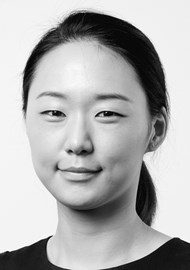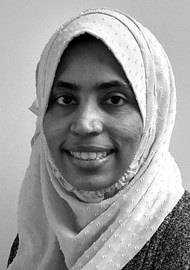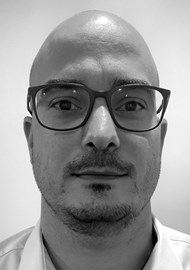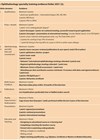Located southeast of Australia in the South Pacific Ocean, New Zealand (Aotearoa) is home to five million culturally diverse people. Renowned for its lush nature spanning from unexplored forests to active volcanos and snow-capped mountains, New Zealand has become both a popular tourist destination and one of the top countries for migrants.
According to the Medical Council of New Zealand, there are approximately 160 actively practising ophthalmologists working in the country in 2023. In addition to these permanent, there are around 50 vocational registrars and advanced trainees on fellowship programmes.

Figure 1: Auckland Harbour, New Zealand.
The University of Auckland (UOA) Department of Ophthalmology, as part of the New Zealand National Eye Centre, is one of the principal institutions offering fellowship programmes in several subspecialities in ophthalmology. Indeed, since 2000, UOA has hosted around 145 senior fellows and 40 pre-vocational clinical research fellows. These fellows hail from all over the globe, including the UK, Australia, USA, Chile, China, Russia, Bulgaria, Oman, Korea, Mexico and India, amongst others. Most years, there is a mix of 12-15 senior and junior fellowships on offer in Auckland.
To celebrate almost 25 years of fellowships since expansion of the department, with the establishment of the Maurice Paykel Professor and Chair of Ophthalmology in 1999, we spoke with some of our fellows this year to find out more about their individual experiences working in the land of the long white cloud.
Dr Qi Zhe (Henry) Ngoo is one of our current vitreo-retinal (VR) fellows from Ipoh, Malaysia. He’s married with two children and was already a consultant ophthalmologist and medical lecturer in Universiti Sains Malaysia. Completing his ophthalmology residency programme in 2018, he pursued his subspecialty in 2019 by enrolling in the vitreo-retinal subspecialty, a three-year programme run by the Ministry of Health, and an essential requirement before becoming a gazetted vitreo-retinal surgeon.
Why did you choose to complete your subspecialty fellowship at the University of Auckland over other potential universities?
Firstly, this is the only fellowship in Asia Pacific to offer both a clinical and research component. As VR is mainly clinical and surgical, not many in the region have the research component. Currently, I am involved in evaluating patients’ cataract development after vitrectomy which is a common complication.
Secondly, the training here is wholesome. I got to learn and understand basics of VR surgery better during the first few months of the fellowship. The supervisors I had, especially over the second half of my training, guided me to do many advanced cases. Now, I am confident to do the simple cases independently with occasional guidance from the consultants on complex cases.
Lastly, the number and variation of cases are good and almost similar to Malaysia. As Auckland is the centre of referrals for North Island, you get to do lots of different cases and build your numbers to boost your confidence even more.
Dr Bia Kim is currently undertaking our anterior segment fellowship. She completed her undergraduate degree through the University of Otago, then a Doctor of Medicine degree with UOA, before working in multiple centres around New Zealand as part of her RANZCO vocational ophthalmology training.
What do you think are the challenges of studying and working within ophthalmology in New Zealand compared to other countries?
As I have completed my studies and training in New Zealand, I’ve spoken to my international colleagues to find out more about their experiences. Based on my own and some of the international fellows I have worked with, there are a few challenges when working in New Zealand.
The clinical fellowships are unfortunately limited to a few large centres around the country that have enough subspecialists for supervision and a sufficiently large case mix. Apart from Auckland, where fellowships are available regularly in most subspecialities other centres like Hamilton, Wellington and Christchurch do not offer fellowships in all subspecialities nor every year. As such, the small number of jobs available become popular and competitive for national and international candidates. So, it’s always a good idea to get in contact with the centre early and keep yourself in the loop as positions can arise unexpectedly and sometimes be quite fluid.
Whilst the clinical components of the fellowships are busy, there are usually sessions set aside for research and teaching. If you wish to undertake a higher degree during your fellowship, you could discuss this with your supervisor early-on as there are certainly options to support this. You will need to commit more than one year in New Zealand if you plan for such doctoral studies as well.
Another challenge to consider would be living costs in New Zealand as it’s not cheap. Simple things like accommodation and groceries are relatively expensive compared to many countries. You also need to think about how far it is from the rest of the world. Whilst it is an amazing place to visit and live, it may be a long way to travel back home during the fellowship, which seems to be the greatest difficulty for our overseas fellows.

Figure 2: Auckland at night.
Dr Nazima Ali is our uveitis fellow, also hailing from Malaysia. More specifically, she’s from Kuala Lumpur and a mother of three children, and all are here with her in New Zealand.
What do you think are the benefits of studying and working within ophthalmology in New Zealand compared to other countries?
I consider myself lucky for being able to pursue my subspecialty training in this beautiful country of New Zealand. The exceptional working environment stands out as a significant advantage, the atmosphere is characterised by remarkable support and kindness from all members of the healthcare team, including consultants, junior doctors, nurses, administrative staffs, technicians and even the orderlies. Such kindness plays a crucial role in easing the transition to a foreign country and minimising stress levels.
Secondly, I am privileged to be able to work under an amazing and enthusiastic consultant who is very passionate about research and academia. She motivates me to do more in the field of research, to share the knowledge with the rest of the ophthalmology community and the world!
New Zealand, particularly Auckland, is home to a diverse multicultural population including indigenous Māori and Pacific Island communities. Working in this environment provided me the opportunity to gain experience in treating a wide range of inflammatory eye conditions among different ethnic groups.
Besides that, I believe the healthcare system here is very well developed and emphasises accessibility, equity and quality of care. I’m amazed at how patients are being given the best of treatment for their inflammatory eye condition without the need to worry about costs. The Ophthalmology Clinic at the Greenlane Clinical Centre is equipped with latest ophthalmic equipment, and this is particularly helpful in managing complex inflammatory eye conditions.
Finally, New Zealand offers excellent work-life balance for everyone. It has amazingly beautiful natural landscapes which are breathtaking. I truly enjoyed my fellowship here and the weekend excursions to various scenic places.
Dr Pui Ting Tiffany Ma is our fellow in paediatric ophthalmology and strabismus. During her registrar years, she worked in Auckland, Wellington and Tauranga, where her interest in paediatric ophthalmology grew. Working with children brought her immense fulfilment and joy as she can relate to this as a mother. She feels that being surrounded by the joy and wonder of children deepens her commitment to this field.
What achievements and / or developments from your personal fellowship experience in New Zealand are you most proud of?
In Auckland, I have had the privilege of working with an exceptional team of ophthalmologists and orthoptists who have guided and supported my professional development. I have gained extensive experience in paediatric surgeries and strabismus procedures, honing my surgical skills and enhancing my autonomy in patient care. I have also presented at the Australia and New Zealand Strabismus Society Meeting in 2022 and 2023, expanding my network and contributing to the field.
This fellowship has provided me with a strong foundation in paediatric ophthalmology, preparing me for my upcoming overseas fellowship. I am grateful for the mentorship and opportunities that have shaped my career trajectory.
Next year, I will embark on a second fellowship in paediatric ophthalmology and strabismus at The Hospital for Sick Children in Toronto. This prestigious opportunity will allow me to further refine my expertise and contribute to the care of young patients in a renowned institution. I am excited for this next chapter in my career.
Dr Chiya Robert Barrett is a father of three girls and is our paediatric ophthalmology fellow at the Counties Manukau Centre. He was born in England, raised and trained in Israel, and for the past year and a half has been training as a paediatric ophthalmologist.
What advice would you offer to someone who is considering relocating internationally to Auckland to undertake a fellowship in your subspecialty?
Relocating for a fellowship can be an exciting experience, I feel you should try and familiarise yourself with New Zealand and Auckland specifically prior to arrival, and especially if travelling with family and kids.
The major hurdle for us was finding a rental house. Even though it seems simple, it’s different from country to country and the process took a month for us. In order to mitigate this, I would suggest arriving early and having a short-term accommodation set, then look for a permanent one at ease.
Make sure to stay organised and keep all relevant documents as there are many minor hurdles on the way such as obtaining an IRD number, opening a bank account and enrolling your kids in school. Secondly, depending on where you arrive, I think it’s best to understand the culture and customs. Familiarise yourself with the country's history, social norms and cultural practices. This will help you integrate better into the community and make it easier for you to understand and respect your patients, as Auckland is a very diverse city.
Further advice is to familiarise yourself with the work environment, as it may be very different from what you know. Keep in mind that you also learn on the go and can always ask for advice from your colleagues. Don’t worry, as the fellowship offers a well-supported environment where everyone is very helpful and kind.
To sum things up, although it takes a while to set up as a family, it is a well-worth transition that will only enhance and enrich your life experience.
We hope this review gives the reader a glimpse of what it’s like pursuing a fellowship and working in ophthalmology in New Zealand, specifically at the University of Auckland. We hope our current fellows have given you a good idea on what to expect, how rewarding the experiences are and the challenges to prepare for when pursuing a fellowship opportunity.
For more information about our fellowship programmes at University of Auckland, please visit our website at:
https://www.fmhs.auckland.ac.nz/
en/som/about/our-departments/
ophthalmology.html
Declaration of competing interests: None declared.
COMMENTS ARE WELCOME















